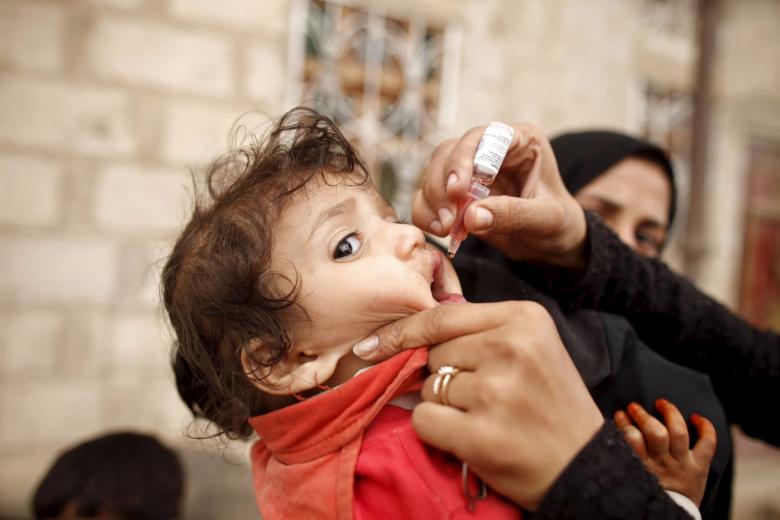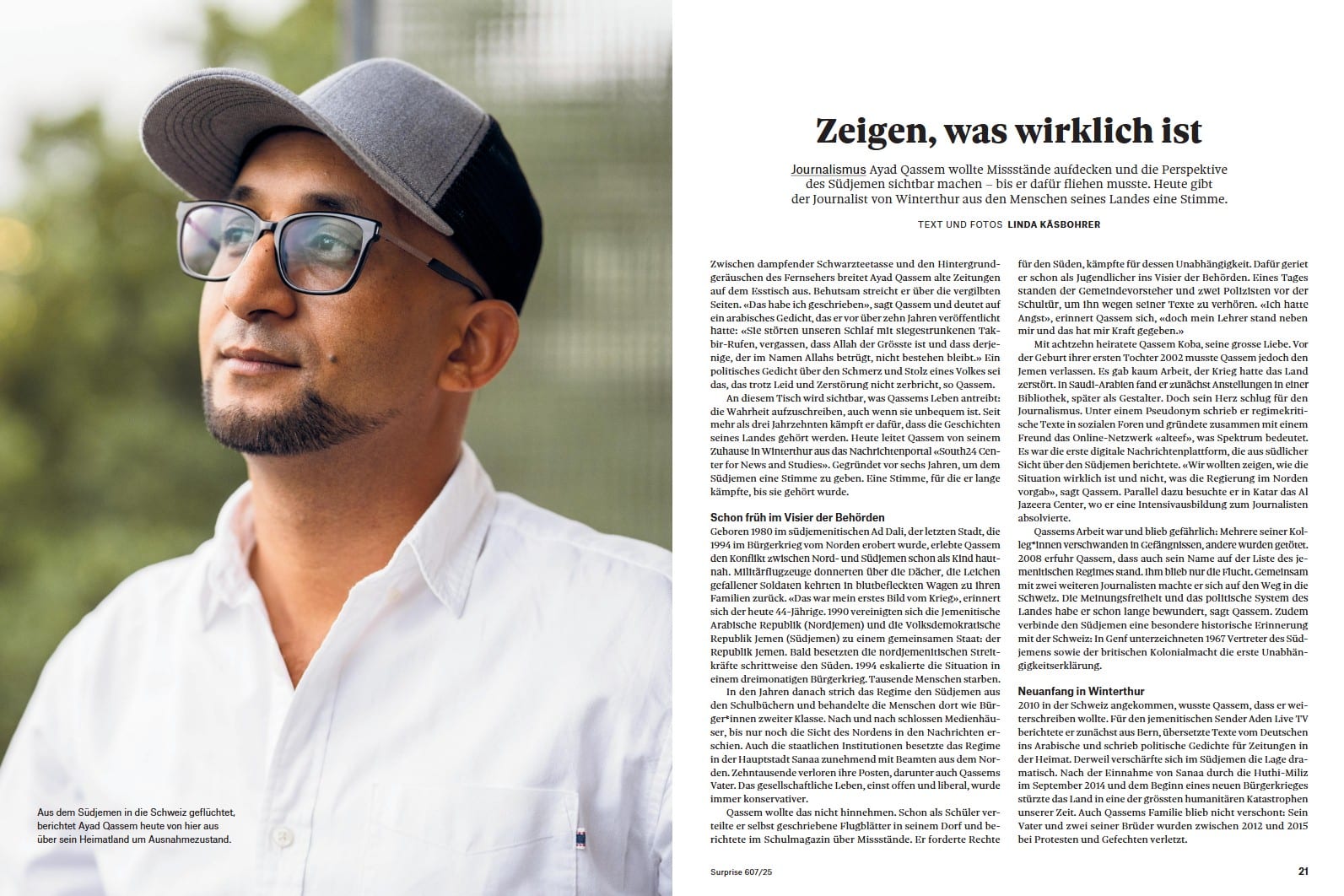
آخر تحديث في: 11-12-2021 الساعة 5 مساءً بتوقيت عدن
Geneva (South24)
The International Health Regulations national focal point for Yemen notified the WHO of circulating vaccine-derived poliovirus type 2 (cVDPV2) stool samples from children with acute flaccid paralysis in Yemen.
According to a new WHO report, the WHO Emergency Committee has expressed concern about the continued rapid spread of cVDPV2 in many countries and indicated that the risk of international spread of the virus is currently high.
On December 9, 2021, the World Health Organization reported the first case, a nine-year-old girl, from Thubab district, Taiz governorate, south-western Yemen, experienced onset of paralysis on 30 August. The child had not been vaccinated against polio. Two stool samples were collected on 31 August and 2 September, and VDPV2 was confirmed on 22 November, with 10 nucleotide differences from the Sabin type 2 poliovirus vaccine strain.
The second case, a 26-month-old girl, from Marib district, Marib governorate, north-east of Sana’a city, experienced onset of paralysis on 1 September. The child had also not been vaccinated against polio. Two stool specimens were collected on 4 and 5 September, and VDPV2 was confirmed on 22 November with 11 nucleotide differences from the Sabin type 2 poliovirus vaccine strain.
The two districts (In Marib and Taiz governorates) do not share a border and are approximately 430 km apart.
The organization said the last VDPV2 case in the country was reported in June 2016 in Aden governorate, [South] Yemen, and was classified as ambiguous VDPV2.
This is a new emergence and the viruses detected are not related to other known cVDPV2s globally, according to the WHO.
The confirmation of these cVDPV2 cases comes in the context of an ongoing outbreak of circulating vaccine-derived poliovirus type 1 (cVDPV1), which has to date paralyzed 35 children (three in 2021, 31 in 2020, and one in 2019).
According to the WHO, polio vaccine third dose coverage in Yemen estimates were 66% in 2020.
In 2018, the World Health Organization, in cooperation with UNICEF and the health authorities in Yemen, launched a campaign from Aden to immunize against polio "targeting more than five million children under the age of five who were previously vaccinated, and newly born," according to officials in the Ministry of Health. the health. (1)
Displacement and migration risks
The WHO said that the risk of further spread of this strain in Yemen is exacerbated by decreased immunization rates during the ongoing COVID-19 pandemic. In addition, the detected cases are from two governorates with accessibility and security issues, with high risk of population displacement to other governorates due to the recent security situation in Marib and Western Coast of Yemen which has led to significant levels of population movement, including to and from the Horn of Africa.
The ongoing humanitarian crisis is a major risk factor to be considered for the spread of the disease, according to the WHO.
The WHO said that the Emergency Committee under the IHR (2005) convened a meeting in November 2021 on the international spread of poliovirus in multiple countries.
WHO advised all countries, in particular those with frequent travel and contacts with polio-affected countries and areas, strengthen surveillance for acute flaccid paralysis cases and commence planned expansion of environmental surveillance in order to rapidly detect any new virus importation and to facilitate a rapid response.
Countries, territories and areas should also maintain uniformly high routine immunization coverage at the district level to minimize the consequences of any new virus introduction, they added.
The WHO's International Travel and Health recommends that all travelers to polio-affected areas be fully vaccinated against polio.
"Residents (and visitors for more than 4 weeks) from infected areas should receive an additional dose of oral polio vaccine (OPV) or inactivated polio vaccine (IPV) within four weeks to 12 months of travel," they stated.
In accordance with the advice of the risk of international spread of poliovirus remains a Public Health Emergency of International Concern (PHEIC).
South24 Center for News and Studies
Photo: A girl receives a polio vaccination in Sanaa, 2017 (Reuters)

قبل 3 أشهر

قبل 3 أشهر